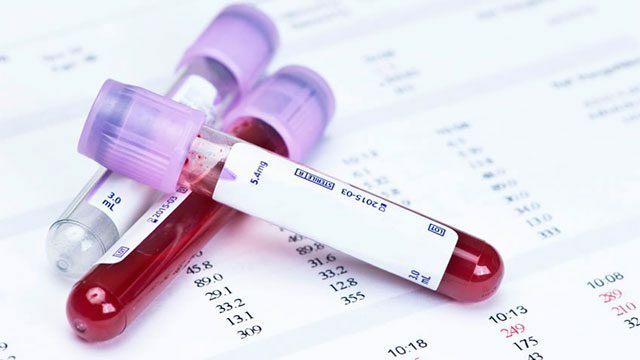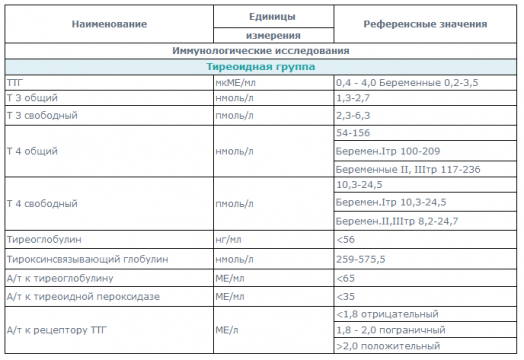The body of a woman, like men, normally resides in a special state of homeostasis - a kind of balance of all internal processes. Nevertheless, when any pathology arises, it is displayed on the results of blood tests of patients.
If we talk about the function of the thyroid gland, the most important in its work is thyroid-stimulating hormone( TSH).It is he who is the chief "boss" of the more famous iodine-containing hormones triiodothyronine( T3) and thyroxine( T4).Many people are interested in questions about what indicator of a given substance should be under normal circumstances in different periods of life. This is especially interesting for the fair sex, because it is known that their body is more susceptible to the pathology of the thyroid gland.
How does TTG work?

The endocrine system is a complex mechanism that can be conditionally divided into several hierarchical steps:
- The hypothalamus is the "King" among all endocrine glands. It excretes the special substances of statins and liberins, which affect the pituitary gland and accordingly reduce or increase its activity.
- Pituitary - produces the so-called tropic hormones. They then affect the end organs, stimulating the production of peripheral hormones. Examples may be TSH, adrenocorticotropic, somatotropic and others.
- Peripheral glands of internal secretion. Basically, they are identical for men and women of different years of life, with the exception of genital organs. They are the final link in the chain of biochemical reactions and cause "effects on the ground".
TTG regulates the functioning of the thyroid gland. With its reduced functional activity, the principle of negative feedback signals enter the main brain, which stimulates the production of the corresponding tropic hormone. Its quantity in the blood increases, and the thyroid gland starts to work more actively. After the normalization of the indicators T3 and T4, it again decreases and so on.
Standards and norms
As already mentioned, the female body is slightly more susceptible to the possibility of a pathology on the part of the thyroid gland. The American Association of Endocrinologists is recommended to prevent the appearance of diseases and timely treatment of diseases, to do a blood test on TTG after 50 years annually. It is proved that this approach allows us to identify the problem in the early stages.
The thyroid-stimulating hormone ratio in women varies between 0.4 and 4 μIU / ml( micro-international units per milliliter).However, it is important to understand that depending on which laboratory does the analysis, the results may be slightly different. Some private clinics use different methods for determining hormones in the blood.

TTG and pregnancy
Separately it is worth talking about women who plan to conceive a baby or when it has already happened. Here the results of a blood test for TTG will be slightly different. The permissible value for women between the ages of 30 and 50 is 0.2-3.5 μMU / ml. This change is due to the restructuring of the organism of the future mother, taking into account the functioning of the fetus.
There is also a certain correlation between the "good" values of the tropic hormone of the pituitary gland depending on the period of pregnancy:
- First trimester - 0,1-0,4 honey / l,
- Second trimester - 0,3-2,8 med / l,
- Thirdtrimester - 0,4-3,5 honey / l.
This should be taken into account when deciphering the results of analyzes and when drawing up a treatment plan. Men here are slightly easier - their hormonal balance is more stable and does not undergo such changes.
Reasons for the possible pathology of
It is important to know that in both men and women the pathology of the thyroid gland develops almost identically, no matter how old the person is. There are 2 main types of disorders of her work:
- Hypofunction. The concentration of T3 and T4 decreases, and the amount of thyroid-stimulating hormone in the serum increases.
- Hyperfunction. The interpretation of the results of the analyzes demonstrates a diametrically opposite picture.
With the help of a laboratory study of the main biological fluid, it is possible to correctly diagnose the disease and choose the optimal method of treatment.

The most common reasons for the sudden rise in the amount of TSH in the blood include:
- the presence of an infectious process in the thyroid tissue,
- tumor or benign hormone active growth,
- stress,
- autoimmune parenchymal organ damage with activation of its functional activity,
- overdose of iodine-containing drugs,
- pregnancy.
However, this does not mean that bearing a fetus necessarily leads to disorders of the thyroid function. Nevertheless, it is noted that women who are expecting a baby aged 30-40 years have a higher risk of organ pathology. This obliges the family doctor and gynecologist to regularly check for the appropriate hormones.
The causes of decreased thyroid activity may be:
- autoimmune lesions of the structure,
- prolonged stress or condition after fasting with significant body exhaustion,
- overdose of medicines that suppress the function of the organ( Mercazolil).
When is it necessary to undergo examination?
It is important to understand that at the initial stages pathology often proceeds asymptomatically and therefore it is better to act on the lead. It is necessary to do a blood test for the number of TTG in the following situations, no matter how old the patient is:
- lack of regular menstruation,
- depression,
- apathy,
- loss of sexual desire( rightly for men),
- emotional lability,
- weight loss,
- sleep disorders,
- increased sweating.
Very often when deciphering the results of examination of the thyroid gland it will be possible to determine the deviation from the usual values. It is here that the doctor begins to develop a plan for treating the patient.
After the doctor has determined the pathology, he must proceed to appropriate therapy of the disease. The most often adequate interpretation of the results of laboratory studies helps to establish the algorithm of therapeutic measures, which must be as relevant to the patient, regardless of how old or old he is.



